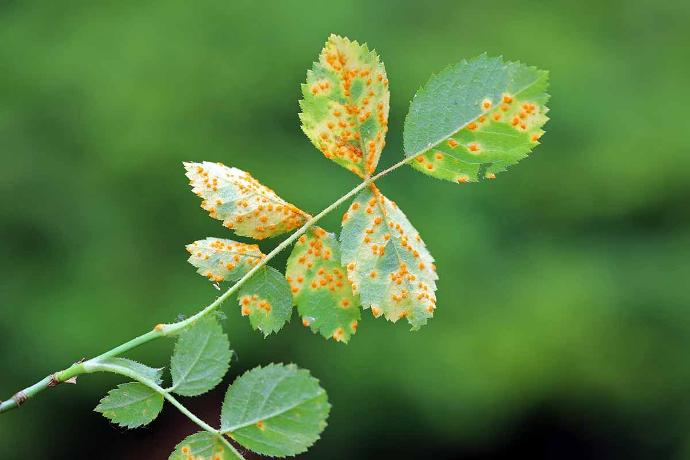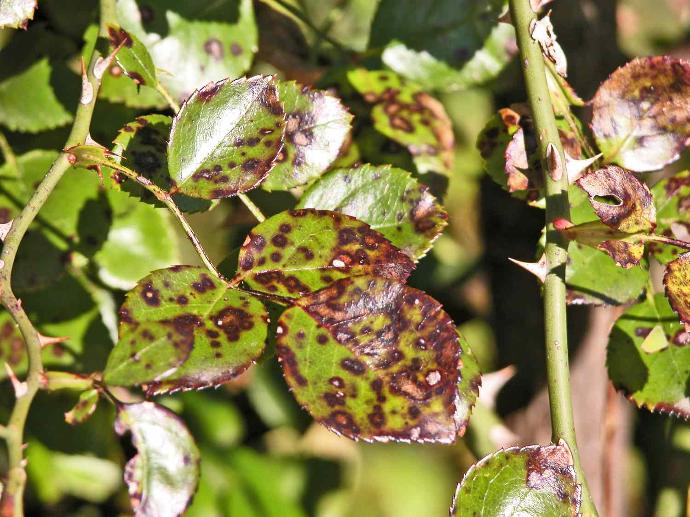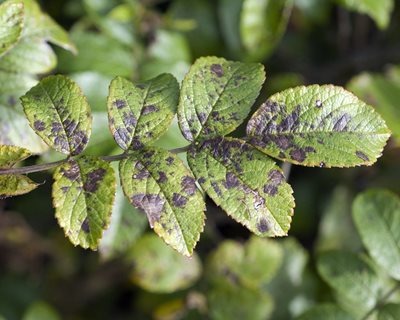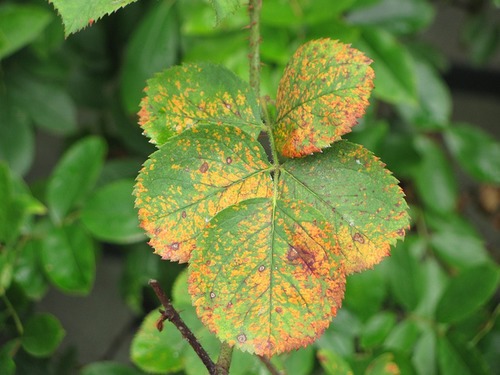Kashmir Rose Plant
Kashmir Rose, also known as Rosa × odorata 'Kashmir', is an outdoor flowering shrub. Plant in well-draining soil with full sun exposure. Water consistently, and deadhead spent flowers for continuous blooming. Pruning helps maintain a compact and bushy appearance.
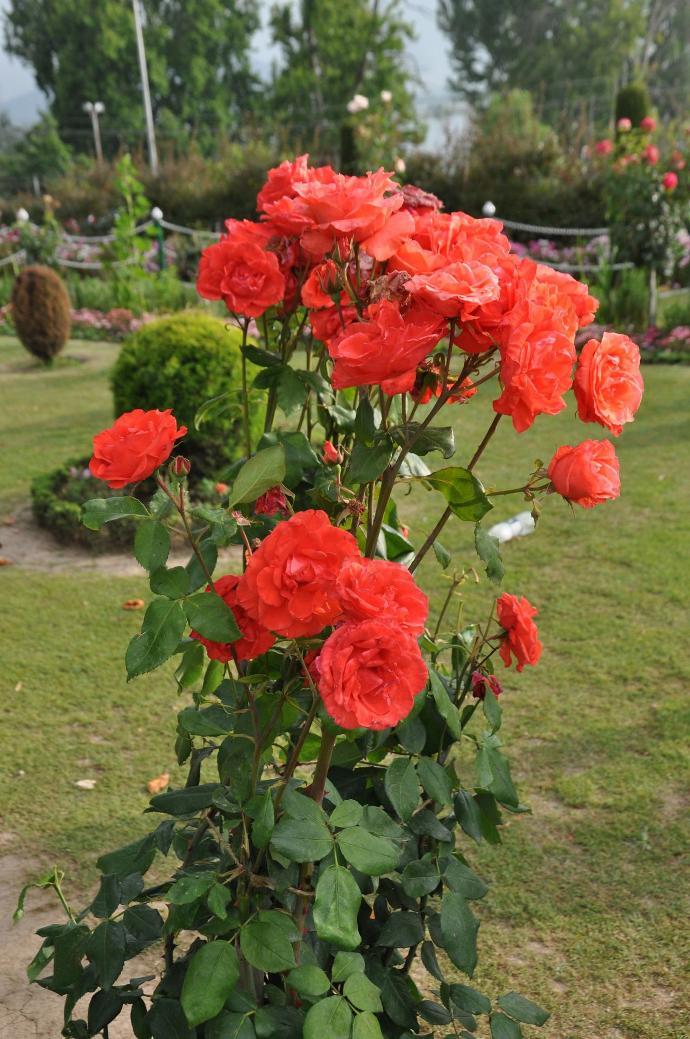
Habit
Shrub
Height
1-1.5 meters
Growth
Moderate
Soil
Well-drained, loamy soil
Shade
Full Sun
Moisture
Moist
Edible
No
Medicinal
No
Origin
Kashmir, India
Climatic Condition
Temperate, cool climates
Temperature (°)
15-25
Humidity (%)
60-70
Potting media
Organic compost, loamy soil
Fertilizers
Balanced, slow-release
Watering
Moderate
Plant Weight
100-200 grams
Flowering Time
Spring to Summer
Soil Ph level
6.0-7.0
Water Ph level
6.0-7.0
Soil EC
0.2-0.5 mS/cm
Yield Per Plant
Low
NPK ratio
10:10:10 or 5:10:10
life Span
5-10 years
Health Benefits
Skin care, heart health
Suggested Grow Media or Potting Mix ?
50% loamy soil, 30% compost, 20% sand
Suggested Fertigation/Fertilizers
Fertilize every 4 weeks with a balanced fertilizer.
Common Diseases and Remedies
Black spot, Rust.
Black Or dark brown spots with fringed edges on leaves, orange to rust coloured pustules on the undersides of leaves.
Prune affected leaves, neem oil , remove infested Leaves, improve air circulation.
HEALTH BENEFITS
Antioxidant and anti-inflammatory, good for skincare, stress relief, and digestive health.
What Is An Kashmir Rose ?
The Kashmir rose is a hybrid rose known for its fragrant pink flowers. It is thought to originate from the Middle East and has been cultivated for centuries for its fragrant oil and beauty. The rose oil obtained from its petals is sometimes called rose otto or rose attar and is highly valued in perfumes and cosmetics. In the Kashmir region of the northern Indian subcontinent, particularly in the Pampore region, Kashmiri roses are traditionally cultivated for oil extraction.
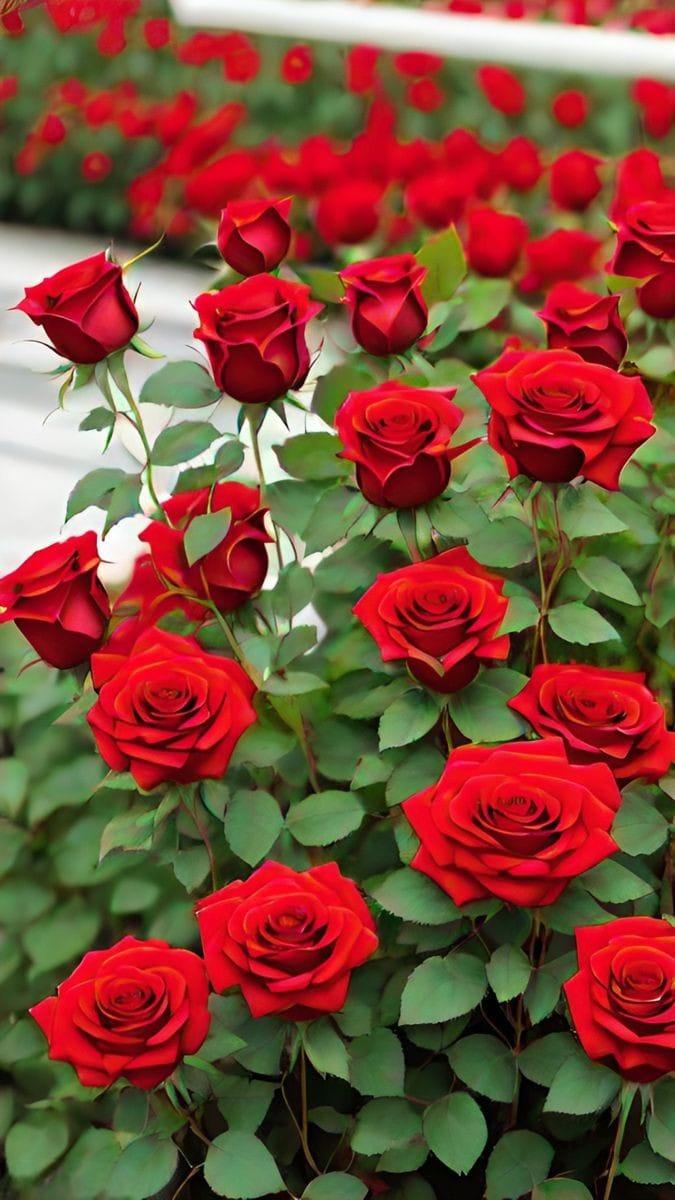
What Are The Different Types Of Kashmir Rose Plants?
1. Rosa centifolia
This species, also known as cabbage rose or Provence rose, is known for its large, fragrant flowers. It is commonly used in perfumery manufacturing and is grown in various regions including Kashmir.
2. Rosa gallica
Commonly known as the French his rose or Gallica rose, this species has been cultivated for centuries for its deep pink to crimson flowers. It has a rich history in European gardens and is highly valued for its aroma and ornamental value.
3. Rosa × Damascana
It is the main species used in the production of rose oil in Kashmir. This hybrid rose is known for its fragrant pink flowers and is highly valued in the perfume industry.
4. Rosa Moscata
This species is also known as musk rose and is prized for its musky scent. It has creamy white or pale pink flowers and is often used as a perfume and garden ornament.
5. Rosa rugosa
Native to East Asia, this species is known for its hardiness and tolerance to harsh conditions. It has large single or double flowers and produces rosehips that are used in herbal teas and jams.
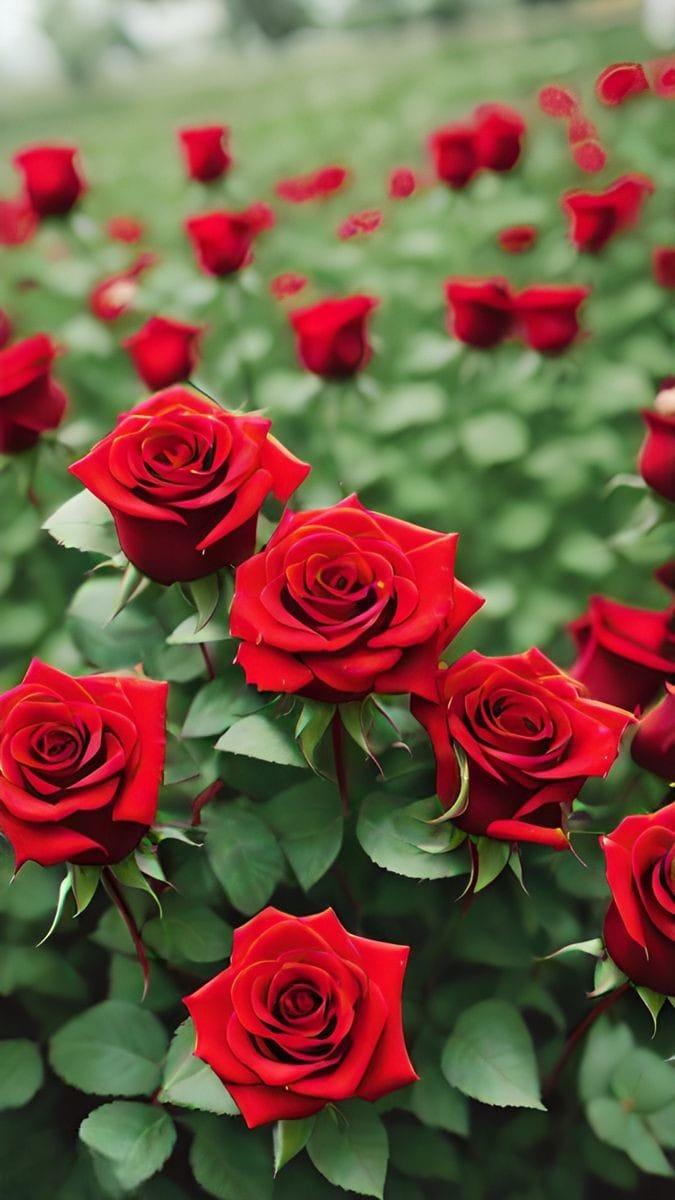
How to Care Kashmir Rose plant ?
1. Location
Kashmir roses are traditionally grown in the Kashmir region of the Indian subcontinent, but can be successfully grown in other suitable locations.
Kashmir rose prefers a temperate climate with mild winters and warm summers. They can tolerate some cold, but may require shelter in very severe winter conditions. It also likes moderate humidity.2. Sunshine
Kashmir roses grow in areas that receive plenty of sunlight. It is best to plant in a location that receives at least 6 hours of direct sunlight each day. Adequate sunlight is essential for healthy growth, vigorous flowering, and the development of a characteristic scent. When choosing a planting location for Kashmiri roses, prefer a location that receives full sun to ensure optimal performance and flowering. If there is enough sunlight, the Kashmir rose will grow and please you with its beauty and fragrance.
3. Soil
Kashmir roses prefer well-drained soil with a slightly acidic to neutral pH, ideally between 6.0 and 7.0. Good drainage prevents water blockages that can lead to root rot and other problems. Additionally, soil rich in organic matter, such as compost, promotes healthy root development and overall plant growth. When preparing your Kashmir rose planting site, make sure the soil is loose, fertile, and free of debris. Amending the soil with compost or well-rotted organic matter before planting provides important nutrients and improves soil structure. With the right soil conditions, Kashmir roses will thrive and produce lush blooms.
4. Hydration
Hydration is essential to the health and vitality of the Kashmir Rose. These roses require constant moisture to thrive, especially during the growing season. Adequate hydration allows plants to absorb essential nutrients from the soil and maintain intracellular turgor pressure, supporting healthy growth and flowering. However, be careful not to overwater, as water standing in the soil can cause root rot and other problems. The key is to water deeply at the base of the plant when the soil begins to dry out, allowing water to penetrate effectively into the root zone.

5. Nourishment
Nutrition
is essential to the health and vitality of the Kashmir Rose. These roses
benefit from a balanced diet that includes nutrients provided by fertilization.
Choose a fertilizer made specifically for roses or a general-purpose fertilizer
with a balanced NPK (nitrogen, phosphorus, and potassium) ratio. Organic matter
such as compost or well-rotted manure is also beneficial as food for Kashmir
roses. Incorporate organic amendments into the soil when planting or apply them
annually as top dressing around the base of the plant to enrich the soil and
provide slow-release nutrients.
6. Issues
Common
problems include diseases, pests, and environmental stressors. Diseases such as
powdery mildew, black spot, and rust can cause leaf discoloration, leaf loss,
and overall leaf rot. Pests such as aphids, thrips, and spider mites prey on
plant tissue, causing damage and loss of vigour. Environmental stressors such
as extreme temperatures, drought, and waterlogging can weaken plants and make
them more susceptible to disease and pests. Additionally, improper pruning
techniques or nutritional deficiencies can inhibit growth and flowering. We
provide appropriate care, including regular check-ups and timely interventions.
What are the Benefits of Kashmir Rose ?
Kashmiri roses are known for their exquisite fragrance, which is sweet, floral and alluring. The essential oil extracted from the petals, known as rose otto or rose attar, is prized in perfumery and aromatherapy for its enchanting aroma. Rose oil from the Kashmiri rose is a popular ingredient in cosmetics and skin care products due to its moisturizing, soothing, and rejuvenating properties. It is used in creams, lotions, serums, and facial oils to moisturize the skin, reduce inflammation, and promote healthy skin. The scent of Kashmiri rose oil is known to have therapeutic effects on the mind and body. Used in aromatherapy to reduce stress, anxiety, and depression, promote relaxation, and enhance mood. Kashmiri rose petals can be used in culinary applications to add flavour and aroma to a variety of dishes and drinks. It is often used in the production of rosewater, syrups, teas, desserts and confectionery.

FAQs About Growing Kashmir Rose
1. Can kashmir roses be grown in different climates ?
Kashmiri roses are adapted to different climates; Generally prefers temperate to cool climates with moderate rainfall. It may not grow in extremely hot or humid conditions if sufficient shade and moisture are not provided.
2. Can Kashmir Rose be grown in a home garden?
Yes, Kashmiri roses can be grown in home gardens provided they have suitable growing conditions such as well-drained soil, sufficient sunlight, and adequate irrigation.
3. What types of Kashmir roses are there?
Rosa moschata is the main species known as the Kashmir rose, but there are also varieties and hybrids that have been bred for specific characteristics such as flower colour.
4. Is Kashmir Rose used in cooking ?
Although less common than other types of roses, Kashmiri rose petals are used in culinary applications, particularly in teas, syrups, jams, and desserts, where they can impart a delicate floral flavour and aroma.
5. How does cashmere rose contribute to the perfume industry ?
Kashmir Rose is highly valued in the perfume industry for its rich and complex aroma. Its essential oil, also known as "rose attar", is a valuable ingredient in high-quality perfumes.
